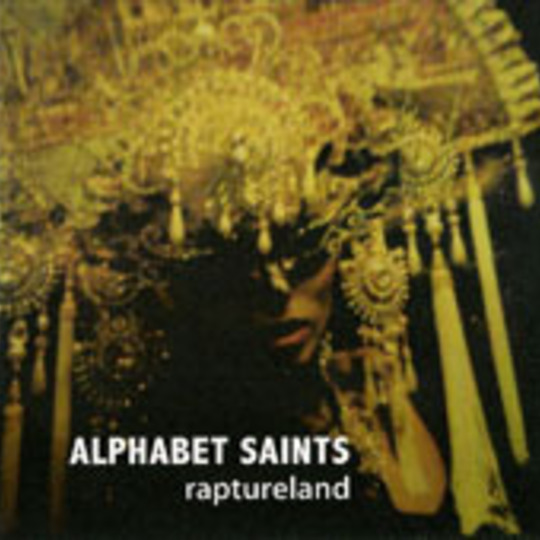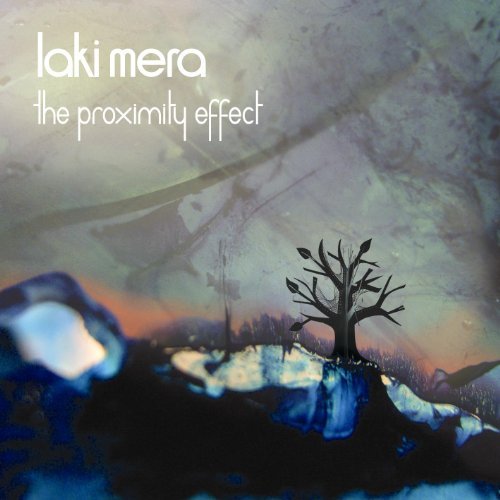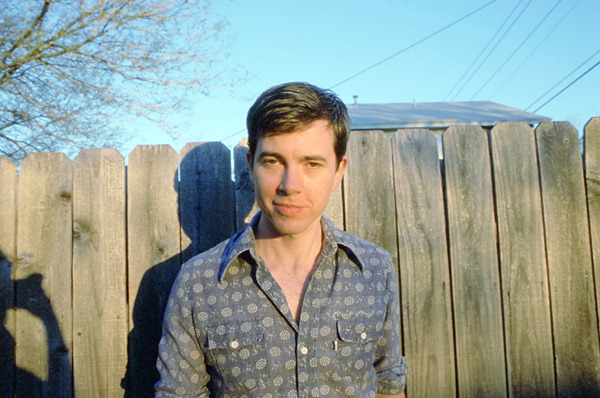Alphabet Saints' debut album arrives with a press release boasting (literally) of comparisons to Roxy Music, David Bowie, Serge Gainsbourg, Leonard Cohen, Talk Talk, The Soft Cell and Suicide. I've no doubt these are in fact bands Alphabet Saints would like to be compared to, as opposed to an honest collation of all the comparisons they've actually received. My point here isn't to condemn the art of self-publicising; these high benchmarks of comparison are pretty indicative of Alphabet Saints' ambitions. To varying degrees the aforementioned influences do rear their heads on Raptureland (an album title that carried more relevance last week), but I could easily add to that list Zero 7 or The Lightning Seeds.
While traces of of Roxy Music and The Soft Cell are certainly present in tremulous vocals and pianos and buzzing synths, it's Suicide who are most potent thanks to the vocals stylings of Robert Christie, who sings with the sort of nonchalant, wearing-shades-indoors, detachment of Alan Vega. This influence extends to the music also, particularly the title-track where serrated guitars squall over a two-note synth buzz extremely redolent of 'Rocket USA', while the echoing hiss of synthetic shakers could be from any track on their 1977 début. Their muscular primitivism is also palpable in the pounding drum machine that interrupts the choral-effect murkiness of 'My Last Desire', but the track then takes an unexpected turn with the introduction of jubilant brass and the backing vocals of Lucy Castro, which compliment the previously incongruously shiny cheap keyboards. However, these dated sounds, which work on this track, more often sound plain tacky. On 'Helpless Victim' the dub-like groove is drowned in the saturation of tacky drum machine cymbals and rippling organs, while Robert Christie proves himself to be a less than versatile singer, with spoken-word verses that seem unsure of which tone of voice to assume to the characterless whine of the chorus. No Bryan Ferry or Leonard Cohen he.
In fact Christie's voice is a weak link throughout. He does a fine job conveying the dignified longing of 'European Girl' as he reminisces “I remember Scandinavia, you were my saviour” over what is essentially The National's 'Terrible Love' equipped a breakbeat. He's equally good on the slightly seedy 'Let Your Hair Down', which combines the simple nightclubbing hooks of latter-day Human League with a snake-charming organ melody. Whenever, he's required to sing with some genuine exuberance, however, he struggles as on the Nineties Balearic dance moves of 'Fling'. Conversely his workmanlike effort on the New Order-lite 'What's in the Cat (Is in the Kitten)' sort of works, but in only as much as he sounds a bit like Bernard Sumner.
The most disappointing aspect of Raptureland is that there are flashes where we hear a group with a good ear for melody, an eclectic outlook and experimental mentality. The problem is that almost nothing gels together into a satisfying whole. Almost every song has one glaring flaw that undermines its strengths; the eerily discordant violin and tentative horror piano of 'The Map' is engagingly atmospheric, but it's let out down by attempt at narrative tension in the lyrics culminating in comically frenzied muttering of “Where's the map?!”. 'Love Or Nothing' is a soothing slice of ambient trip-hop which is more noughties than nineties at least, but then it sounds almost identical to Zero 7's 'Destiny'. This kind of botched eclecticism, as uneven in style as it is in quality, is representative of an album that is admirably conceived, but poorly executed. It's not that you need to look hard for Raptureland's merits, it's just that it's too easy to see its flaws; you can't see the Serge Gainsbourg/Roxy Music/Talk Talk for the Zero 7s, I'm afraid.
-
5Neil Ashman's Score






















